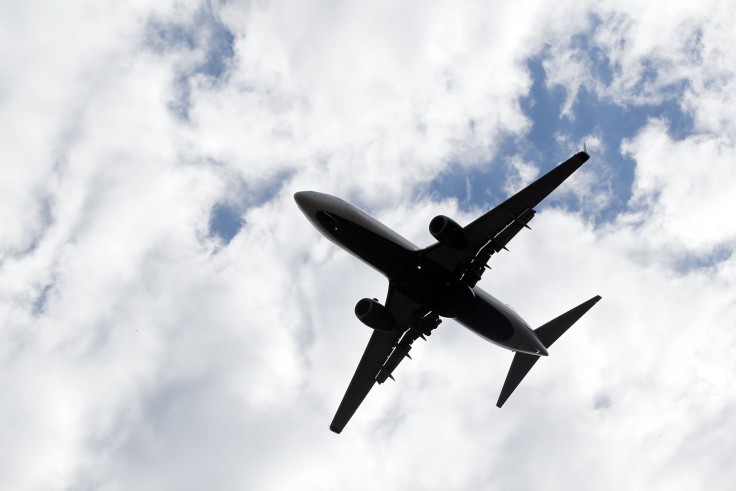Is It Possible To Contract The Coronavirus From An Airplane Bathroom? New Evidence Suggests It Is

New evidence from researchers at Soonchunhyang University College of Medicine in Seoul suggests that a 28-year-old woman caught the coronavirus from an airplane’s bathroom while in flight.
The researchers said in the Centers for Disease Control and Prevention’s Emerging Infectious Diseases journal, where the report was published, that the woman wore an N95 face mask except when she was in the plane’s bathroom. She was one of 300 South Koreans evacuated from Italy during the coronavirus outbreak back in March.
"The toilet was shared by passengers sitting nearby, including an asymptomatic patient. She was seated three rows away from the asymptomatic patient," the researchers wrote.
Health officials took many precautions to help prevent the spread of the virus before the flight departed Milan. A total of 11 symptomatic passengers were removed from the flight after they were given medical examinations, medical interviews, and body temperature checks outside the airport before boarding. Passengers were also given N95 masks and kept 6 feet apart when boarding the flight.
"Most passengers wore the N95 respirators except at mealtimes and when using the toilet during the flight. After an 11-hour flight, 299 asymptomatic passengers arrived in South Korea and were immediately quarantined for two weeks at a government quarantine facility in which the passengers were completely isolated from one another. Medical staff examined them twice daily for elevated body temperature and symptoms of COVID-19."
Passengers of the flight were subject to a coronavirus test before boarding and quarantined upon arrival to South Korea. As many as six passengers tested positive for the virus after arriving at their destination while the 28-year-old woman developed symptoms eight days after returning home and was hospitalized, researchers said.
"Given that she did not go outside and had self-quarantined for three weeks alone at her home in Italy before the flight and did not use public transportation to get to the airport, it is highly likely that her infection was transmitted in the flight via indirect contact with an asymptomatic patient," the researchers wrote.
Airlines have been aggressive at their approach to prevent the spread of the coronavirus on their planes and in airports. The airlines have implemented extensive sanitizing of planes, which utilize ventilation systems that are designed to clean the air thoroughly as well as quickly to prevent airborne illnesses while in flight.
Delta has partnered with Lysol to understand the best way to sanitize its planes to keep passengers and employees safe and American Airlines has been issued emergency use approval of a cleanser, SurfaceWise2, that prevents the spread of viruses like the coronavirus for up to seven days upon application. Both airlines also require face masks for passengers and employees in-flight and at the airport.
© Copyright IBTimes 2025. All rights reserved.





















